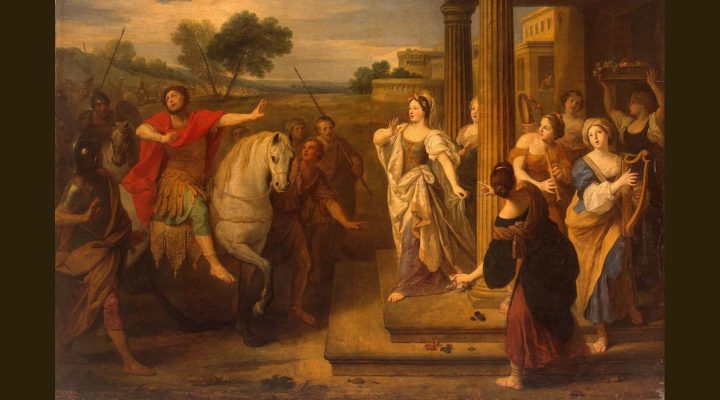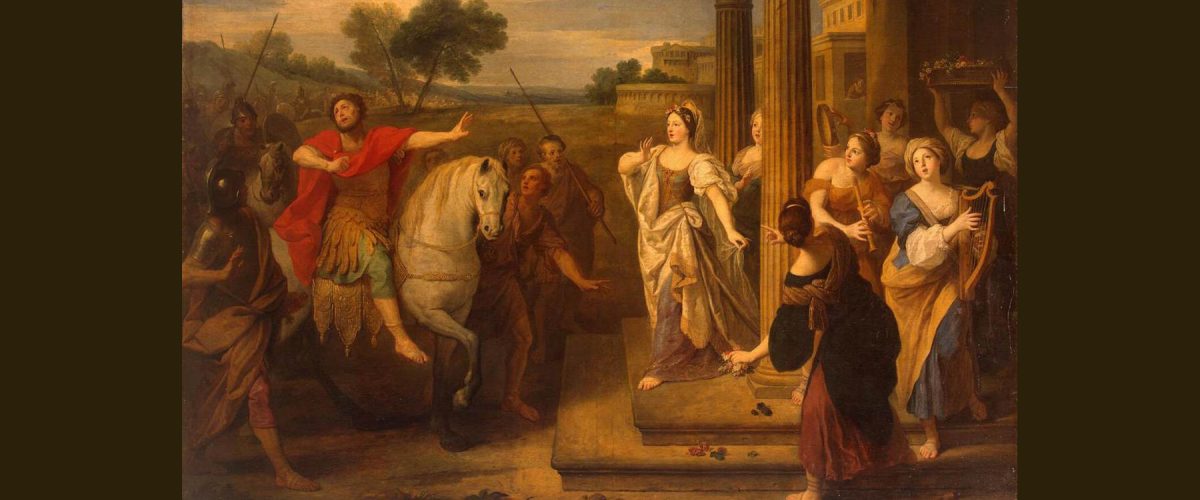Old Testament scholar Phyllis Trible names it one of the “texts of terror” in the Hebrew Scriptures: Jephthah, a Gileadite general, is facing a decisive battle with the Ammonites. He makes a vow to God: If you give me the victory, when I return home, I will offer as a sacrifice to you the first person I see coming out of my house. An unholy vow.
When he returns home, the first person he sees is his daughter, whom he then makes a human sacrifice to God. To use Tribble’s words, his faithfulness to an unfaithful vow has condemned his daughter to death. The girl is not named, known only as Jepthah’s daughter. She is not named, but her story is repeated through human, and inhuman, history.

Stephen Shoemaker
The Western church and the Eastern church both set a day aside, Dec. 28 and 29 respectively, to remember the slaughter of the innocent children in and around Bethlehem by King Herod. King Herod in a murderous, paranoid mania, sent soldiers to kill all children under the age of 2, so to be sure to eliminate the young son born to be king of the Jews.
Our minds can scarcely take it in, but they must. Matthew renders the story and quotes the Hebrew text: “A voice is heard in Ramah, wailing and loud lamentation, Rachel weeping for her children; she refused to be consoled, because they were no more.”
By the fifth century, this day of remembrance, the Feast Day of the Holy Innocents, had become a day of fasting and grieving — weeping for the slain children, and weeping for the grieving mothers, too, whose lives were subject to the whims of the powers that be.
We must also think about mothers and women of today, whose lives have become the property of the state, as abortion laws in some states now forbid abortions as soon as the sixth week of gestation, the week a heartbeat first can be registered. At six weeks, a woman may or may not have realized she is pregnant.
The punishment for ending a pregnancy can be as severe as that for murder. Some laws allow for the prosecution of doctors who assist in abortions, whether or not a pregnancy places a woman’s life in danger. The various laws are often blurry, leaving hospitals, doctors and women unsure how to follow them. Some laws make it a punishable crime to help transport a woman to a state with less restrictive abortion laws.
A girl as young as 10 years old can be forced to give birth to her rapist’s child, although that birth may kill her or leave her with permanent injuries.
Recently, the story of the Cox family in Texas has become national news. Kate Cox and her husband were happily expecting their third child, looking forward to bringing their daughter into the world. Then came a heartbreaking diagnosis: their child had a rare genetic abnormality, trisomy 18. It was certain their child would live only minutes, at most a day or so after birth.
It also was certain the birth itself would place Kate Cox’s life in danger and probably end her ability to bear more children. With astounding courage and the full support of her physician, Kate Cox asked the Texas courts to grant an exception that would allow her to obtain an abortion. A lower court granted her this right.
Then, Texas Attorney General Ken Paxton, a politically ambitious man, seized on this family’s tragedy.
He stayed the lower court’s decision and sent the case to the Texas Supreme Court. He also sent threatening letters to hospitals, doctors and medical personnel, warning them if they assisted Cox with an abortion, they would face severe penalties.
The Texas Supreme Court quickly overturned the lower court’s decision and ruled against the Cox family. This situation has reminded many of the fictional “Gilead” in Margaret Atwood’s novel, The Handmaid’s Tale, a place where women’s bodies are conscripted by the state to bear children.
“A legion of self-professed Christian politicians, including Ken Paxton, have in essence prayed to God a version of Jephthah’s unholy vow.”
Cox has made her legal battle with the state of Texas public, hoping that by turning the spotlight on what is happening to women in Texas, other women may be spared the tragic ordeal she has undergone.
The certain, painful death of an infant and the medical danger to its mother should demonstrate to all lawmakers the need for safe and compassionate ways to end a pregnancy.
A legion of self-professed Christian politicians, including Ken Paxton, have in essence prayed to God a version of Jephthah’s unholy vow: “If you give me political power, I will make sure my Christian moral values will become law. And if that means sacrificing some women’s bodies, so be it.”
The list of those they are willing to sacrifice is longer.
For 40 some years, a certain kind of Christian politician has promised to bring women’s lives, in particular women’s reproductive lives, under the control of the state. The inner sanctum of a woman’s conscience and her right to make her own moral choices has been violated. In the gynecologist’s office, along with a woman and her doctor, have intruded a politician and a preacher.
Abortion is a complex moral, legal and medical matter. It does not belong to the province of political maneuvering.
For Jephthah’s daughter and for Rachel, weeping for her children, and for thousands of women now living under governmental threat we lift our prayers and become their champions. The Feast of The Holy Innocents is not just about the children.
Stephen Shoemaker serves as pastor of Grace Baptist Church in Statesville, N.C. He served previously as pastor of Myers Park Baptist in Charlotte, N.C.; Broadway Baptist in Fort Worth, Texas, and Crescent Hill Baptist in Louisville, Ky.


